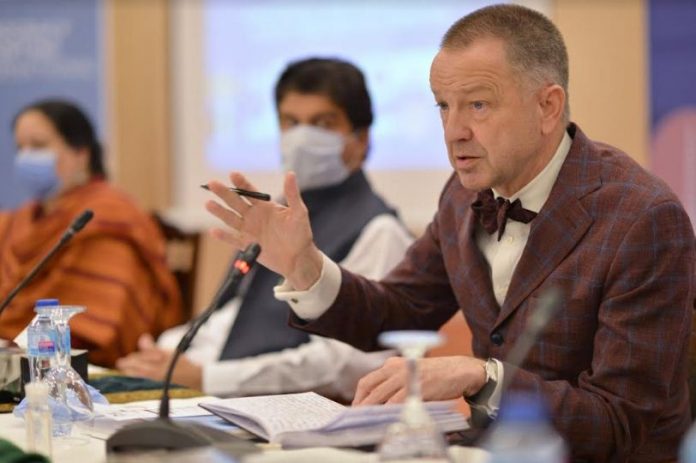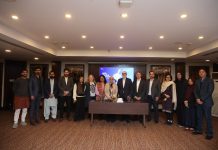Ambassador of Germany to Pakistan Bernhard Schalagheck says that his country was extending support to Pakistan for protection of human rights in a number of areas
Zubair Ahmed
Islamabad, MAR 14 – The participants of an inter-provincial dialogue stressed the need for bridging gap between civil society and government for bringing democratic and human rights reforms in the country.
They said that human rights formed the foundation of democracy and a strong democracy guaranteed protection and safety of human rights in a society. The main challenge in this regard is weak engagement, they said, adding that political support is vital to stop violation of human rights.
The dialogue titled ‘Inter-Provincial Exchange: Democratic and Human Rights Reforms in Pakistan’ was organised by Democracy Reporting International (DRI) that was attended by lawmakers, rights activists and development experts from all the four provinces of the country besides foreign diplomats.
Ambassador of Germany to Pakistan Bernhard Schalagheck, who was chief guest at the first session of the event, said that his country was extending support to Pakistan for protection of human rights in a number of areas. He said that the constitution of Pakistan guaranteed protection of rights f all its citizens irrespective of religion, caste and ethnicity.
He said that a social change was being witnessed. He said that women empowerment would also lead to economic stability. “Any change in a society comes from within. International support is also important for it but the job should be accomplished by the people themselves,” he added.
The diplomat said that different segments of the society should build coalitions among themselves for protection of their rights.
The first session of the dialogue, moderated by Shaheera Syed, was also addressed by Javed Ahmed Malik, Country Representative of DRI; and Rakhshanda Naz, Khyber Pakhtunkhwa Ombudsperson for Protection Against Harassment of Women at Workplaces.
They said that civil society always played pivotal role in restoration of democracy in the country. They added that concerted efforts were needed to reduce the gap between government and civil society.
The second session, moderated by Nadia Tariq Ali, was addressed by Niaz Ahmed, Khyber Pakhtunkhwa Assembly Deputy Speaker Mehmood Jan, Punjab Assembly’s Standing Committee on Law, Parliamentary Affairs and Human Rights Chairperson Tahir Khalil Sindhu, Sindh Assembly Standing Committee on Social Welfare and Human Rights Chairperson Barrister Pir Mujeebul Haq, Balochistan Assembly Standing Committee on Social Welfare and Human Rights Chairperson Ahmed Nawaz and Human Rights Commission of Pakistan General Secretary Haris Khalique.
They recalled their respective government’s steps for protection and promotion of human rights. However, they regretted that standing committees were not playing their due role in that regard. They said that standing committees played major in legislation and resolution of people’s problems in developed countries but it was not the case in Pakistan.
The third session, moderated by Tnavir Jahan, was addressed by former member of National Commission for Human Rights Shafique Chaudhry, National Commission on the Rights of Child Chairperson Afshan Tehsin, Ali Imran and Sindh Human Rights Commission Member Zulfiqar Ali Shah.
They highlighted the role of human rights commissions and asked the government departments to cooperate with hum rights commissions instead of looking at them as their rivals. They said that monitoring of government department by human rights commissions was meant to help them in improving their performance.

















